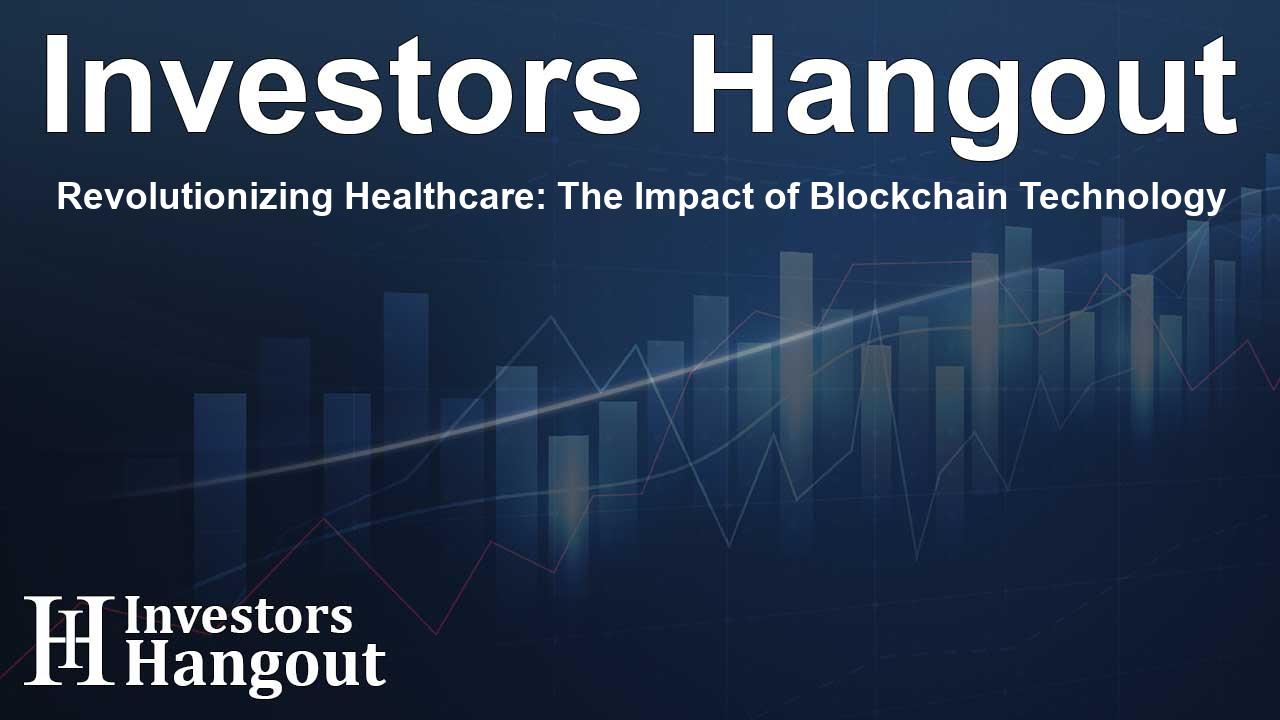Revolutionizing Healthcare: The Impact of Blockchain Technology

Understanding Blockchain in Healthcare
Blockchain technology represents a significant change in how healthcare institutions manage and secure patient data. This innovative approach utilizes decentralized, immutable, and secure digital ledgers to address the ongoing challenges in managing medical information effectively. By facilitating secure sharing of patient records among healthcare providers, blockchain can minimize fraud, especially in areas such as insurance claims and supply chain tracking. This is crucial in today's landscape, where the integrity of healthcare data is paramount.
Current Trends in Blockchain Adoption
The growth trajectory of the blockchain in healthcare market underscores a demand for security and privacy in managing sensitive patient data. The potential reached a valuation of approximately USD 832 million, with future projections estimating this figure to grow to USD 61,111 million within a decade. This astonishing growth, at a CAGR of 71.10%, indicates that more healthcare providers are recognizing the value of technological innovation to protect patient information efficiently.
Market Challenges
Despite the promising growth figures, there are hurdles to implementing blockchain solutions in the healthcare sector. High implementation and maintenance costs pose a barrier, particularly for smaller healthcare providers. Building and sustaining blockchain infrastructure requires a substantial investment in both technology and personnel. Additionally, scalability remains a concern, as many healthcare providers still rely on traditional systems that can complicate integration with blockchain technology.
Key Participants in the Ecosystem
As the market evolves, various companies are pushing the boundaries of blockchain applications in healthcare. Leaders such as Guardtime, ThinkBlockchain, and Solve.Care are innovating to enhance healthcare delivery and operational workflows. These companies are working towards creating comprehensive solutions that integrate blockchain’s benefits while addressing the unique challenges faced by healthcare providers.
The Future of Patient Data Management
Looking ahead, blockchain promises to revolutionize the patient experience and data management. Modern patients care deeply about their data security and the ability to control who has access to their information. As initiatives like the European Health Data Space (EHDS) gain traction, there's an increased focus on standardizing consent processes across digital platforms. Blockchain offers a robust framework for managing consent efficiently through immutable records, which can significantly enhance patient trust.
Healthcare Efficiency through Blockchain
Administrative inefficiencies continue to plague the healthcare system, costing billions each year. By automating processes such as claims processing and record-keeping, blockchain can significantly streamline operations. According to certain forecasts, blockchain could cut administrative costs by nearly 30%, representing immense savings potential in the healthcare sector. Already, pilot programs have been initiated to test smart contracts that expedite insurance claims through rapid verification of terms.
Regional Developments in Blockchain
North America is at the forefront of blockchain adoption in healthcare, bolstered by advanced infrastructure and a high penetration of electronic health records (EHRs). More than 85% of U.S. hospitals have implemented EHR systems, facilitating deeper integration of blockchain technology for improved healthcare delivery. Europe, too, is making strides with a significant adoption of digital health solutions that engage blockchain to ensure privacy and enhance operational efficiency.
Conclusion
Blockchain's potential to redefine healthcare operations positions it as a key player in the industry's future development. With its capabilities to secure data, enhance interoperability, and improve patient outcomes, the rise of blockchain is something to watch closely as the market evolves. The coming years will likely see a deeper integration of this technology across various healthcare sectors, creating an interconnected ecosystem focused on patient-centered care.
Frequently Asked Questions
What is the primary benefit of using blockchain in healthcare?
The main advantage is its ability to provide secure, immutable records that enhance data security and privacy for patient information.
How quickly is blockchain technology growing in the healthcare sector?
The market is expected to grow rapidly, with projections indicating a CAGR of 71.10%, reaching USD 61,111 million by 2034.
What challenges does blockchain face in healthcare implementation?
Major challenges include high costs of implementation, ongoing maintenance expenses, and scalability issues, particularly for smaller providers.
Which companies are leading the blockchain in healthcare market?
Key companies include Guardtime, Solve.Care, and others who are leveraging blockchain solutions to improve healthcare delivery.
How is patient data managed differently with blockchain?
Blockchain offers a decentralized approach to patient data management, allowing for secure sharing and better control over consent records, enhancing patient trust.
About The Author
Contact Lucas Young privately here. Or send an email with ATTN: Lucas Young as the subject to contact@investorshangout.com.
About Investors Hangout
Investors Hangout is a leading online stock forum for financial discussion and learning, offering a wide range of free tools and resources. It draws in traders of all levels, who exchange market knowledge, investigate trading tactics, and keep an eye on industry developments in real time. Featuring financial articles, stock message boards, quotes, charts, company profiles, and live news updates. Through cooperative learning and a wealth of informational resources, it helps users from novices creating their first portfolios to experts honing their techniques. Join Investors Hangout today: https://investorshangout.com/
The content of this article is based on factual, publicly available information and does not represent legal, financial, or investment advice. Investors Hangout does not offer financial advice, and the author is not a licensed financial advisor. Consult a qualified advisor before making any financial or investment decisions based on this article. This article should not be considered advice to purchase, sell, or hold any securities or other investments. If any of the material provided here is inaccurate, please contact us for corrections.
